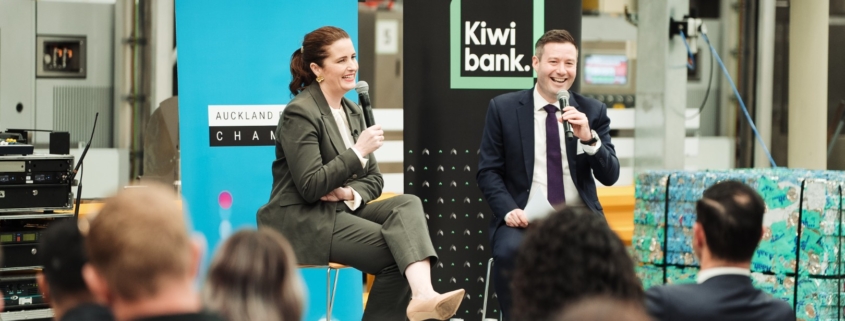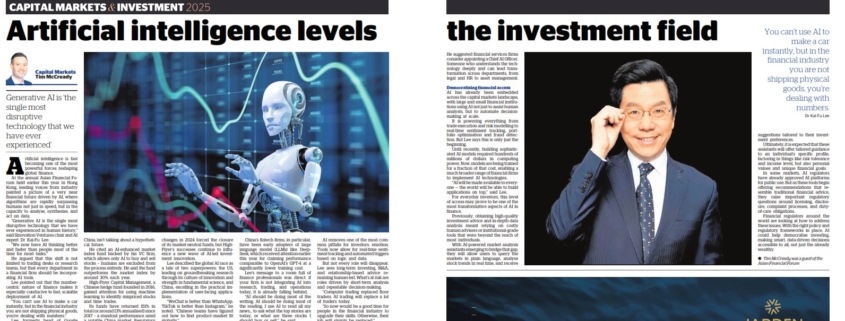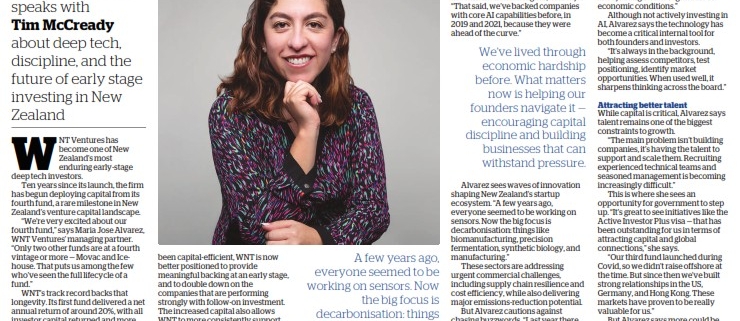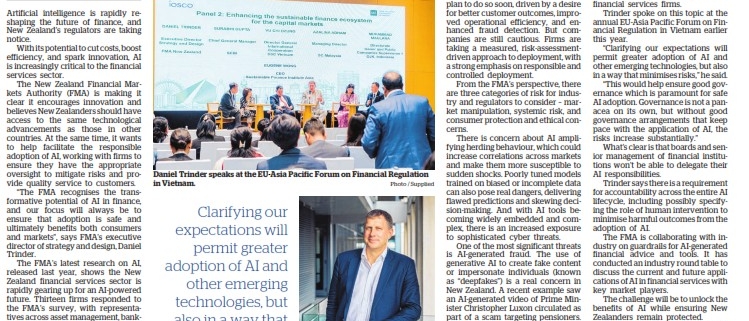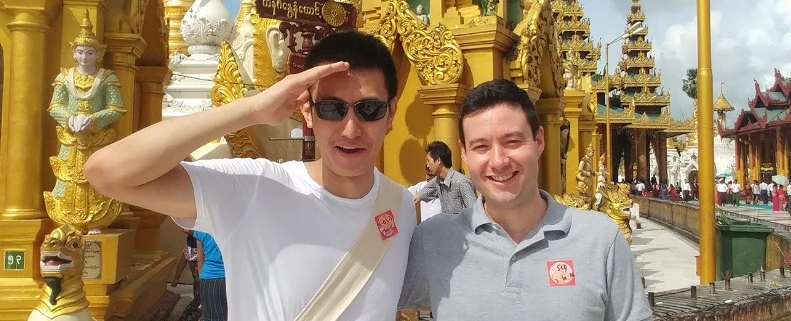At the heart of it, my work sits at the intersection of business, trade, and investment, helping the public and private sectors navigate an increasingly complex world.
I don’t share this to list achievements, but to show how central the Asia New Zealand Foundation has been to all of it.
And, somewhat unexpectedly, it all started not in China, Japan, or Singapore. But somewhere we don’t often think about as even being in Asia – Vladivostok, in the far east of Russia.
People often say New Zealand sits at the edge of the world. In my opinion, that edge is Vladivostok.
Remote and bordered by North Korea and China, just across the sea from Japan, it’s one of the most distant major cities from its own capital, both in geography and influence. The Asian influence there is unmistakable, shaping the city in ways that make it feel a world away from Moscow.
In 2012, the Asia New Zealand Foundation advertised an opportunity for Leadership Network members to attend APEC in Vladivostok, as part of the Voices of the Future delegation.
I think that is the one and only time the Foundation has sent anyone to Russia.
At the time, I was working for NZTE in London, leading its European investment activity. I thought I had a solid understanding of international business and trade. But suddenly I was at one of the most high-profile economic summits in the world, and it shifted everything I thought I knew.
Many of the people here tonight have attended multiple APEC summits, helping shape trade agreements and international policy and dialogue. But for me at the time, it was all new.
Let me take you back to 2012:
John Key was New Zealand’s Prime Minister. Hu Jintao was in his final few months as President of China.
Psy’s Gangnam Style was spreading around the world, introducing a new generation to K-pop
President Barack Obama was in full campaign mode ahead of the Presidential election where he was up against Mitt Romney, and because of that Hillary Clinton (as Secretary of State) delivered the US address at APEC in his place.
One of Prime Minister John Key’s top priorities while he was in Russia was to progress a Free Trade Agreement with Russia, Belarus, and Kazakhstan.
As we now know, that didn’t eventuate. After Russia’s annexation of Crimea, the FTA never progressed.
I caught up with John Key just before his meeting with Putin. We talked about the upcoming meeting, and he admitted he was a little nervous.
And that conversation taught me that trade deals aren’t just about economics.
They’re about geopolitics. They’re about relationships. They’re about the personalities of world leaders. And in many ways, we are seeing that play out now more than ever.
That experience at APEC seemed to set off a chain reaction that shaped the rest of my career.
While at APEC, I found myself in conversation with a group of business leaders and journalists, including one from the New Zealand Herald. At one point during the conversation, she turned to me and said, ‘You should write about that.’
I hadn’t considered it before. But the idea stuck. So, I gave it a go.
And since then, alongside my other work commitments, I’ve been writing on trade, investment, and international affairs, always with a strong focus on Asia.
That led to regular commentary on TV and radio, and the chance to moderate and emcee major business events both in New Zealand and also internationally.
And, eventually, attending APEC in 2012 led me to what I feel is the ultimate full-circle moment.
Fast forward to 2021, and it was New Zealand’s turn to host APEC.
This time, I wasn’t in the audience, I was curating the content for the CEO Summit – including facilitating some of the discussions that took place on stage.
The lineup included Angela Merkel, Amal Clooney, the chair of Tesla Robyn Denholm and other top business and political figures from across APEC economies.
The shift from being an audience member in Vladivostok to helping shape the dialogue on a global stage started with one opportunity when the Asia New Zealand Foundation called for applications to attend APEC.
Of course, many of you will remember that 2021 didn’t turn out to be the APEC New Zealand had hoped for. COVID had other plans. While Auckland was under heavy COVID restrictions, I was on the main stage of Auckland’s Aotea Centre, overseeing the live broadcast to a global audience.
Despite the challenges, it was a huge success and remains one of the most surreal and rewarding moments of my career.
But the Foundation hasn’t just shaped my career. It has changed how I see the world.
One of the Russian delegates at the Voices of the Future Programme at APEC in Russia – Igor – became a good friend. He visited New Zealand, we did a bit of a road trip around the country. I half-joked that we should do something similar in Russia and drive across it. He said absolutely no way – “that would be a terrible idea!”
But twelve months later, I had convinced him to do it, and I was back in Russia. Not for a summit. Not for work. But to drive across the country with Igor and another New Zealand friend of mine, in a Toyota Prius I bought in Japan and had shipped to Vladivostok.
Over five weeks, we drove 15,000km from Vladivostok to St Petersburg. Along the borders of China, Mongolia, and Kazakhstan, meeting people and seeing the country in a way no conference could ever show me.
That’s something that has stuck with me whenever I travel to Asia.
You cannot understand a country, its economy, its culture, its opportunities, just by reading reports or sitting in meeting rooms. You have to be there, on the ground.
Another important thing I wanted to highlight is that none of what I have done would have been possible without the networks I have built.
I didn’t have a strong network starting out. The Foundation gave me my first connections. It put me in rooms I never thought I’d be in and introduced me to amazing people.
A few years after my time at APEC, I travelled to Myanmar with the Foundation as part of the Young Business Leaders Initiative to connect with emerging leaders across Southeast Asia.
At the time, Myanmar was at a turning point, opening up and attempting to transition from military rule to democracy.
It felt like a nation on the brink of something new. The people I met there weren’t just interested in business, they were thinking about what Myanmar’s future could be, what role they could play in shaping it, and how we could all work together to connect Myanmar with the world.
Sadly, things have changed for Myanmar since then.
But here’s the thing: those relationships didn’t disappear.
The friendships I made in Yangon (Myanmar’s largest city) remain. Some of those people are now close friends. Some I’ve since worked with on trade opportunities between New Zealand and Southeast Asia.
Even in uncertainty, relationships endure.
That’s why I’m so grateful to the Foundation and to all those who support it. Because of your work, people like me have been able to build careers, networks, and perspectives that wouldn’t have otherwise existed.
So no, Vladivostok 2012 wasn’t a defining moment for New Zealand-Russia relations. It wasn’t even particularly a defining event for global trade.
But it was a defining moment for me.
It opened doors I didn’t know existed. It changed how I see business. And it led me to opportunities that transformed my life.
That’s the power of the Asia New Zealand Foundation.
And as Asia’s importance to New Zealand continues to grow, the Foundation’s work has never been more vital.
To everyone who contributes to that mission: thank you. You’re not just shaping an organisation. You’re shaping the future of so many people’s lives.

